Growing army of trained canines help a wide range of people from autistic children to senior citizens
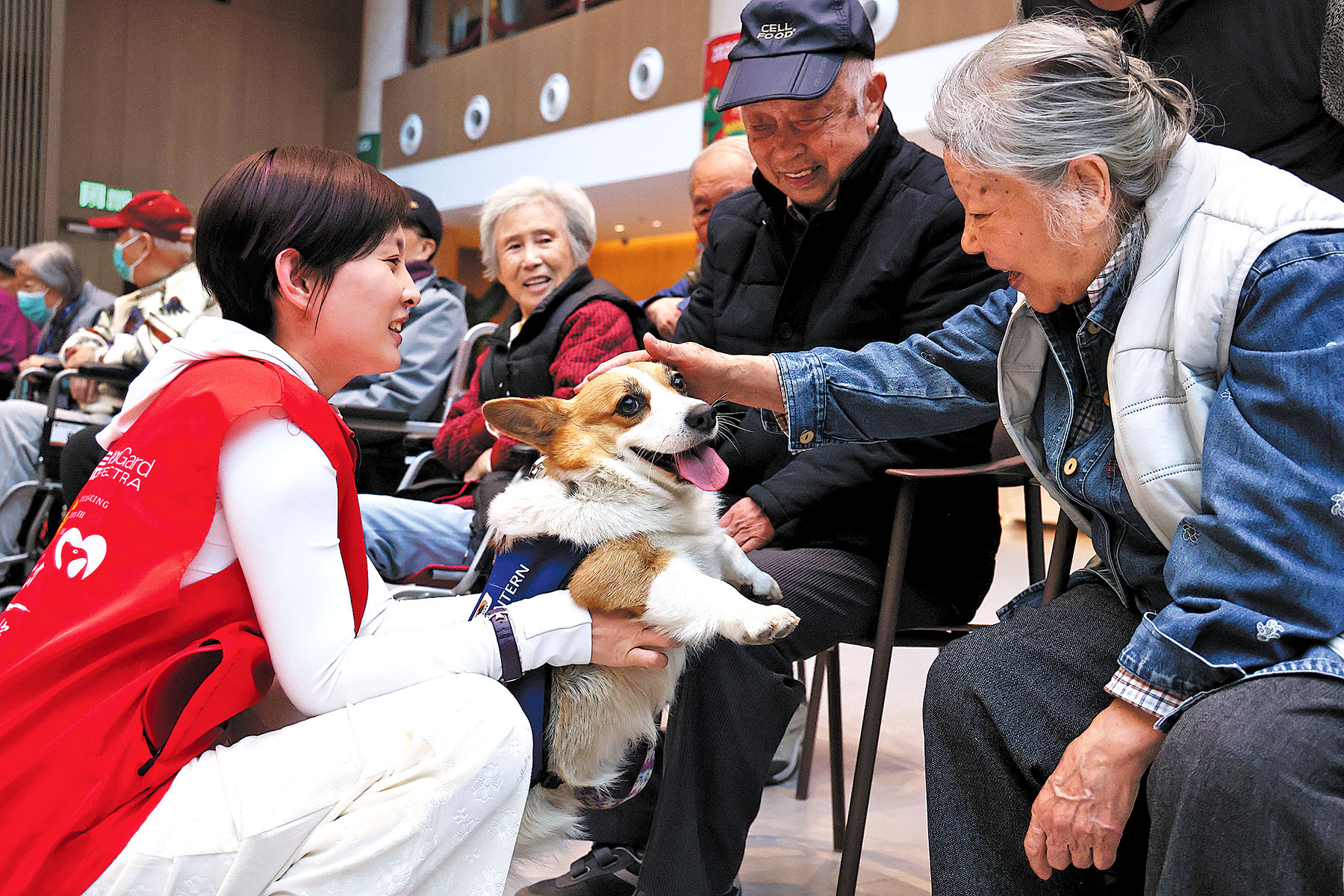
Whenever Wu Jingyi asks her dog Lucky if she wants to go to work, Lucky springs up eagerly and jumps for joy. Some might agree that is a decidedly nonhuman response — at least for many working people.
Work for the 5-year-old female border collie in Shanghai is special. Lucky finished training to become a therapy dog in August, and now she just takes care of people — relying on her acute canine senses and an unbreakable bond of love for the two-legged creatures in her custody.
Lucky’s workplace includes not only disadvantaged groups and special care patients in nursing homes but also people in schools and hospitals, where she helps teachers, students, and healthcare workers relax.
In recent years, everyone knows about police dogs and guide dogs. But now there are also therapy dogs, which have undergone careful training to help people with mental illnesses or autism, or an elderly person who may have cognitive impairments.
Paw for Heal, or PFH, is a volunteer therapy dog program founded by pet behavior expert Wu Qi in 2012. It aims to harness the social value of companion animals by training family pets to be capable of providing physical and emotional assistance to people.
“I started raising Lucky in early 2020 after adopting her from a stray dog shelter,” said Wu Jingyi, the dog’s owner, noting that she learned about PFH and Wu Qi through a WeChat group where people shared dog-related activities and information.
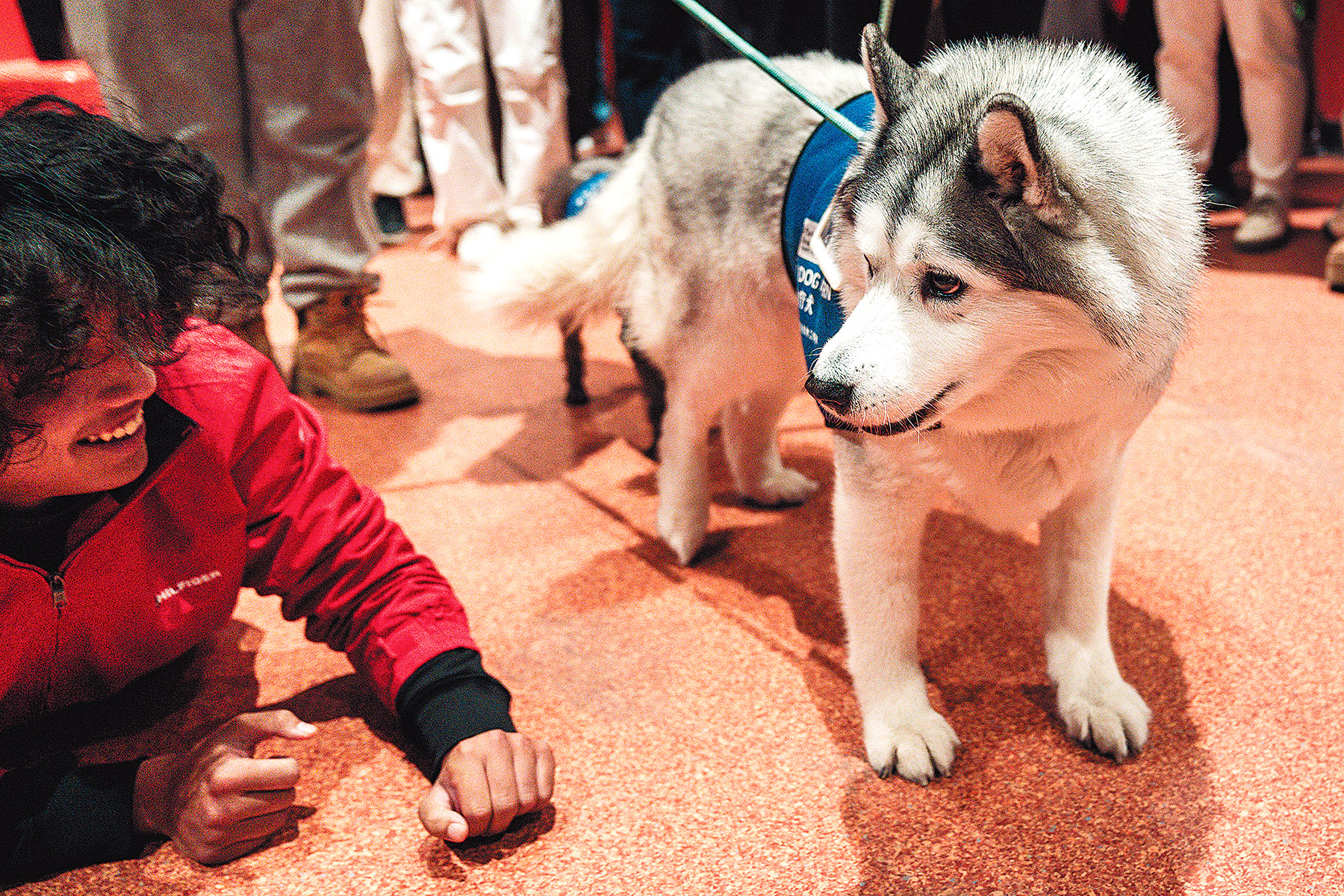
Looking at the requirements for the animals, she thought Lucky was well-suited for the job, and she decided to have her tested in Shanghai. That was in February 2023, and Lucky performed exceptionally well, passing on the first attempt.
“At that time I wasn’t clear about what a therapy dog was supposed to do,” Wu said. “After participating in PFH’s activities, I realized that many organizations and groups are in great need of mediators, and certain kinds of animals can fill the bill in ways that are quite different from human volunteers.”
After passing the exam, Lucky was channeled into internships at various organizations in a sort of doggy graduate program using Wu Qi’s system.
“I am happy to see her improvement,” Wu Jingyi said.
During one visit to a nursing home, Lucky met an older woman who loved dogs but showed some fear around larger ones, such as this border collie.
“I could see the smile in her eyes, but she hesitated to come closer to Lucky,” Wu Jingyi said. “So I asked Lucky to show the woman that she is safe and controllable. When someone gives Lucky food and I say no, for example, she will not eat it.”
Wu Jingyi asked the elderly woman to count down from five to one, after which Lucky would be allowed to eat. This made the woman very happy, she said.
“She went from being guarded and fearful at first to expressing a desire to try. We then asked if she would be willing to pet Lucky if she wasn’t too afraid. And she agreed.”
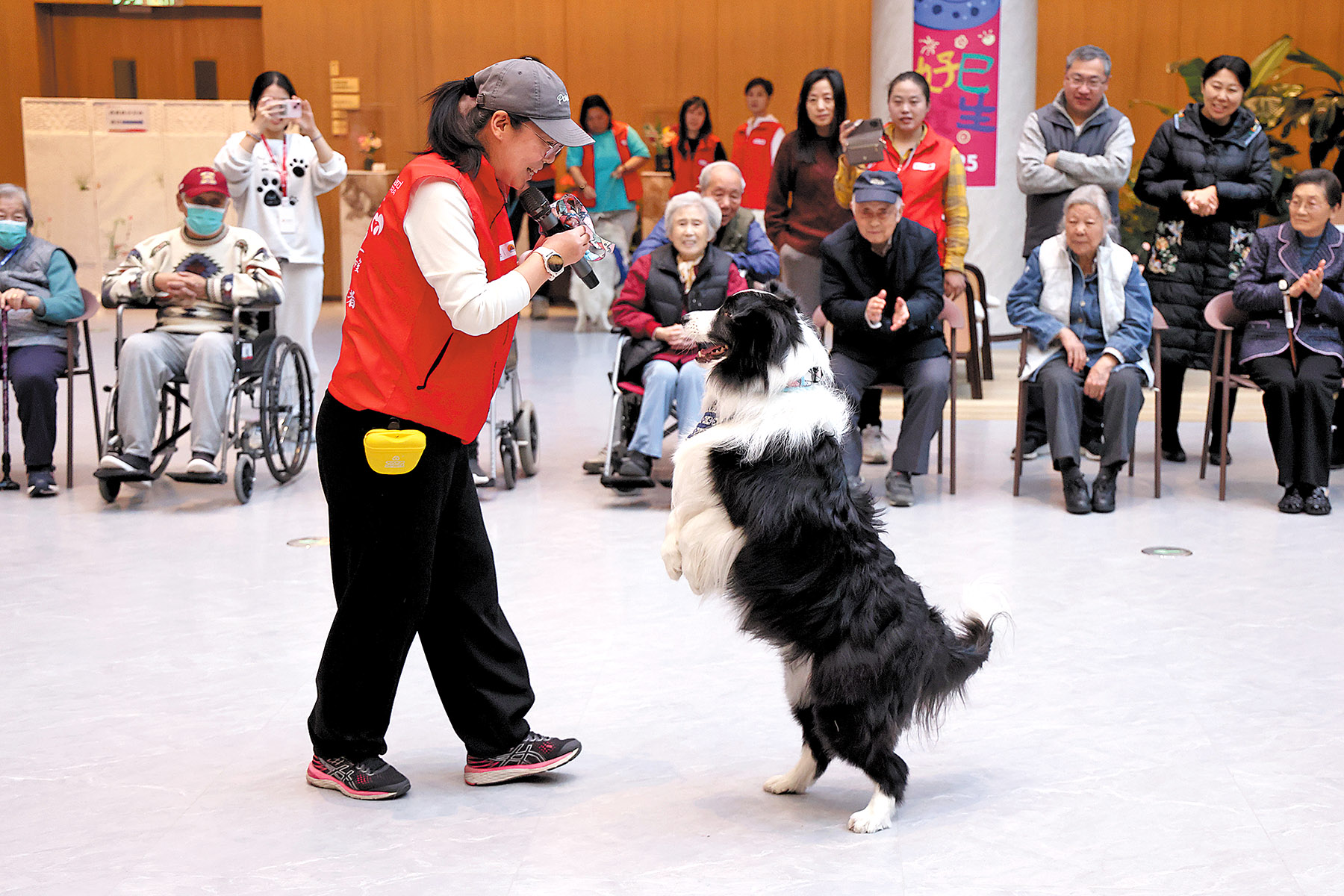
Wu Jingyi brought Lucky closer to the woman’s knee, and after a little petting, the fear vanished.
“The whole process may not sound very complex, but I could see genuine joy,” Wu Jingyi said.
PFH collaborates with experts from domestic and international autism rehabilitation centers, nursing homes, neurology hospitals, and special education programs to develop training programs for therapy dogs in China.
It primarily serves elderly individuals with cognitive problems, children with autism, and individuals with physical disabilities, anxiety disorders, or depression.
“The program aims to help the elderly and children with special needs strengthen their interactions and communication with the external world. It enriches their lives through the assistance and companionship of the therapy dogs,” Wu Qi said.
“It also promotes the exploration of normal social interactions for children who have special needs through long-term therapy with the dogs. The animals can help these young people integrate into society.”
The organization hopes to enhance public understanding of cognitive impairment, autism, and other conditions to increase society’s general acceptance and understanding, he said.
In early 2023, PFH initiated a national series of therapy dog public welfare activities that included four main tracks: a therapy dog evaluation conference, a therapy dog knowledge seminar, social welfare services, and volunteer training.
“Unlike other working dogs, most therapy dogs come from ordinary pet-owning households and only work when called upon to provide physical, psychological, or emotional support for people in need,” Wu Qi said. “To become a certified therapy dog, the animal must undergo rigorous training, guidance, and evaluation, after which a PFH professional qualification certificate is issued.”
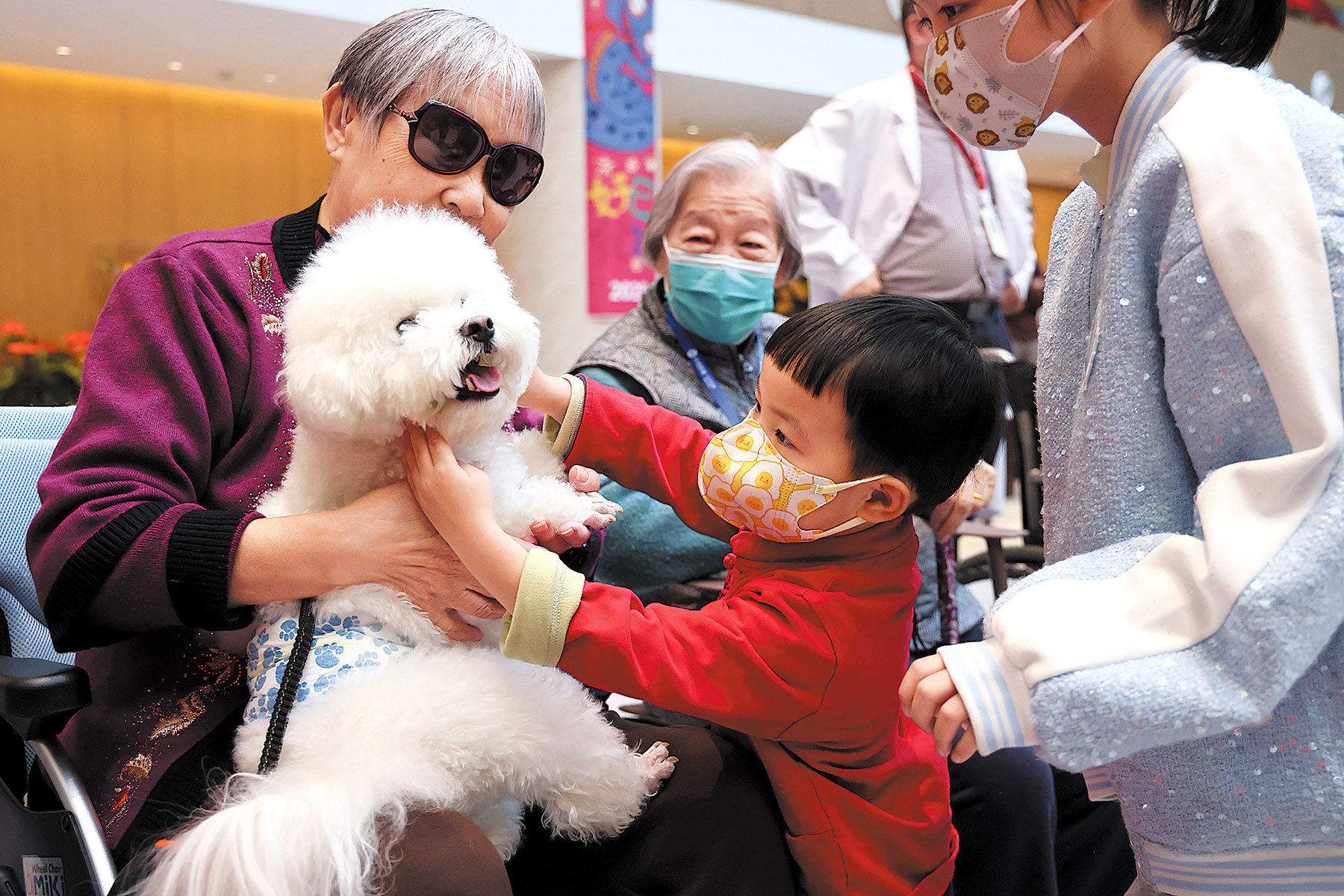
Therapy dogs are not selected based on breed but on temperament, Wu Qi said. They need to be gentle and enjoy interacting with people.
Xiao Ai, the owner of a 4-year-old female border collie, had been looking forward eagerly to participating in more practical activities after her dog, Oneseven, passed the PFH test on Dec 7.
During the two-hour assessment at the Shenzhen World Convention and Exhibition Center in Guangdong province, only Oneseven and another dog received certifications and became interns.
As volunteers and pet owners, people also need to undergo rigorous training, Xiao said. “Our main role is to work in conjunction with professional therapists to help our dogs quickly establish connections with the individuals who need assistance.”
So far, around 300 therapy dogs have been certified by PFH in China, and some 6,000 volunteers are participating nationwide.
Starting in 2022, at the beginning of each school semester, some autistic children at Huimin School in Shanghai’s Fengxian district have participated in special classes. In one, the children had therapy dog partners and played games, guided by Wu Qi and some volunteers, who worked with the teachers to complete certain functional improvement training.
For children with more severe autism, petting the dogs was a good way to help stabilize emotions in many cases.
“The intervention of therapy dogs in the classroom had a direct impact on improving the emotions of some children,” said Wu Huizhe, a teacher at the school.
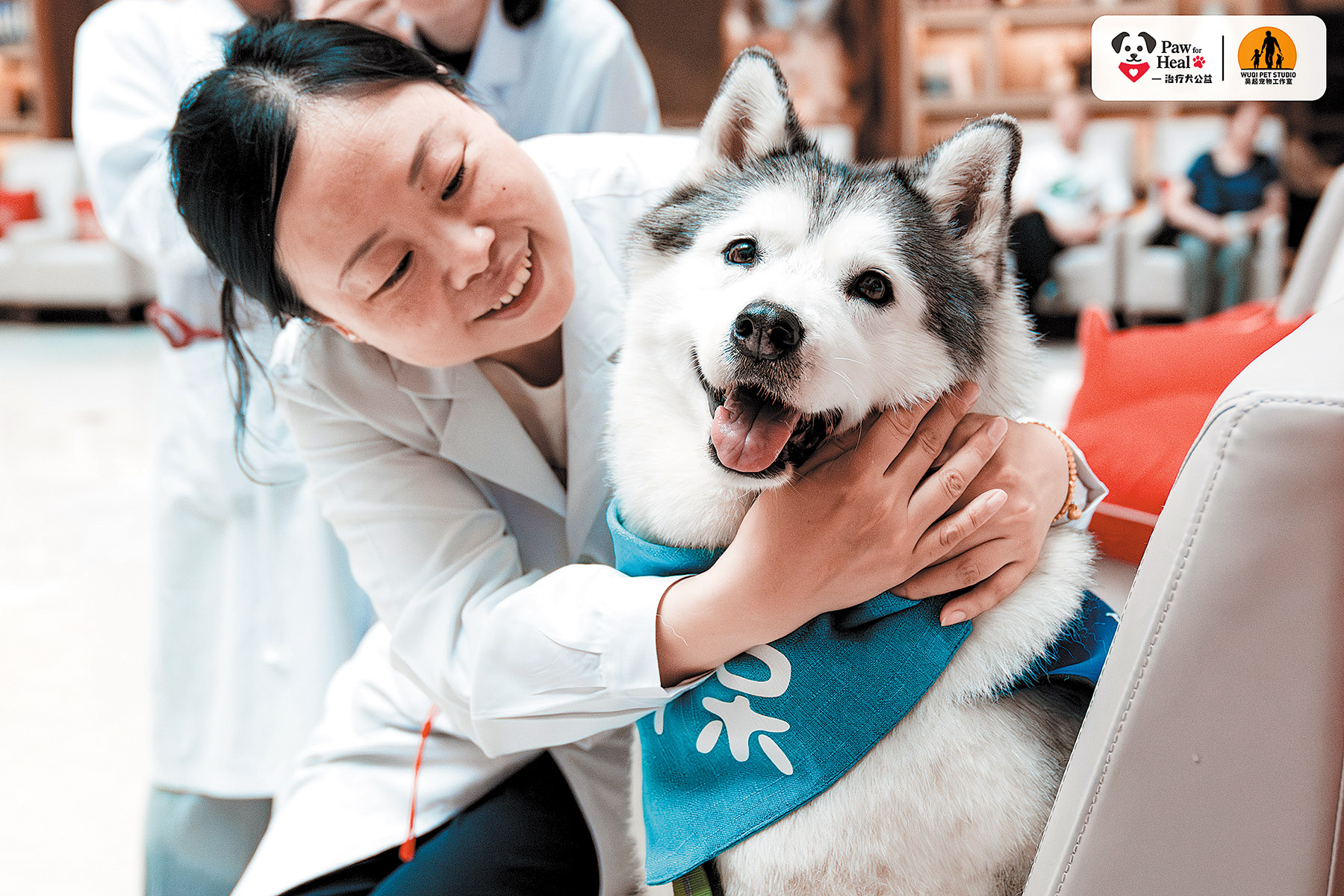
At the other end of the age spectrum, China’s population is living longer and becoming older on average. It is projected that by 2035 the population of people aged 60 and above will surpass 400 million, creating unique problems for individuals and society.
Over the past decade, the PFH team has stayed close to the elderly, providing animal-assisted therapy — a form of non-drug treatment — to communities and nursing homes. The interactions with animals provide surprising physical and mental benefits.
While receiving basic medical care and other services, the elderly can relax, relieve stress, enhance social skills, and find more joy in life by interacting with small animals.
Since participating in PFH’s first activity in her community in March, Zhou Yuezhen, a 68-year-old resident of Shanghai, looks forward to every visit with the dogs.
“I had a dog about 20 years ago, but it died, which made me very sad,” she said. “Because I was afraid of losing again, I never kept another one.
“So it is truly a joyful experience every time a different dog comes to our community to interact with us elderly people and play games,” she said. “I also participate in other activities, like handicrafts. But the dogs provide other kinds of interactive experiences, which are very different from human ways.”
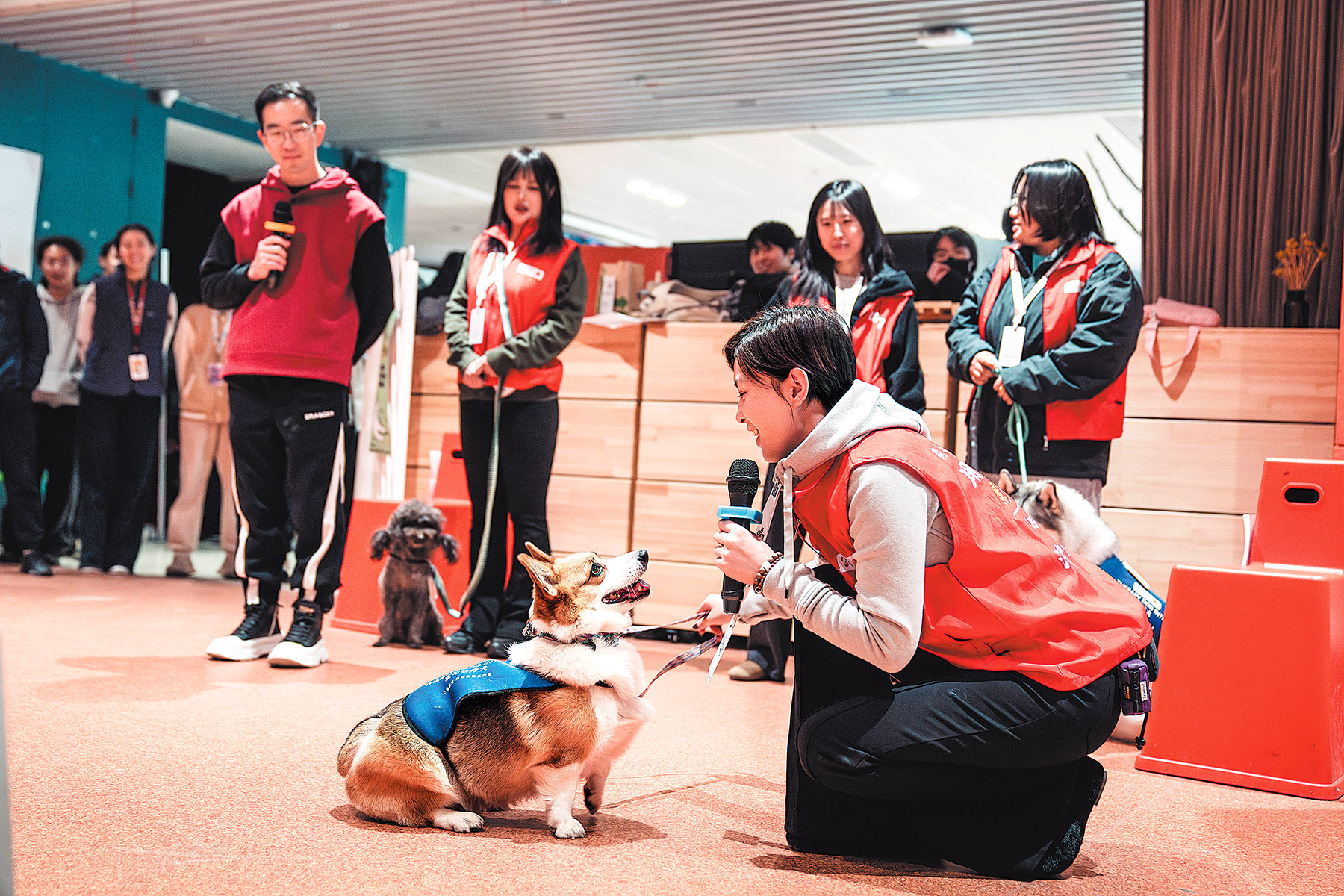
In collaboration with Peking Union Medical College Hospital in 2022, PFH conducted a comprehensive animal therapy study on the elderly. Last May, the PFH team launched an innovative project to establish a combination of community eldercare and pet therapy services.
“Through a series of rigorous experiments and data analysis, we found that regular interaction with animals can significantly reduce feelings of loneliness and anxiety among the elderly, improving their quality of life and sense of happiness,” Wu Qi said. “This outcome has not only gained widespread recognition in the scientific community but also provides strong evidence for promoting animal-assisted therapy nationwide.”
During free clinics at nursing homes, Kang Lin, director of the geriatrics department at the hospital, witnessed the clear positive impact of animals on the elderly.
“Based on my years of clinical experience, physical rehabilitation is the greatest challenge because many elderly people lack the motivation to move,” she said. “However, Wu Qi demonstrated that simply having them hold hula hoops for therapy dogs to leap through motivated people to get moving more.”
Kang hopes to collaborate with Wu’s team to standardize animal-assisted therapy for the elderly.
Guo Yanqi in Beijing, Guan Tong in Shenzhen, and Randy Wright at China Daily contributed to this story.
Contact the writers at zhouhuiying@chinadaily.com.cn


